What Game of Thrones Teaches Us About Instructional Design
By Wes Turner - Instructional Designer
I haven’t had time yet to watch HBO’s new Game of Thrones prequel series, House of the Dragon (though I’ve mercifully managed to avoid spoilers.) However, its positive reception has reminded me of the original series, and its famously poor ending.
Around the time of the original series’ finale, there was a litany of articles about what precisely made the ending so bad. Most argued that it failed because of issues with production, or its truncated season, or its lack of source material.
In a blog post for Scientific American, sociologist Zeynep Tufekci offers a different perspective, one that has stuck with me ever since I read it. She argues that the main problem with the last two seasons was showrunners David Benioff and D.B Weiss’ decision to move “away from the sociological and [shift] to the psychological.” Where initial seasons focused on compelling, complex characters making choices within equally complex and compelling systems (monarchies, churches, etc.), the final seasons lose this institutional perspective and follow a more traditional Hollywood approach, solely focusing on the individual psychology of Westeros’ heroes and villains.
Tufekci’s entire article is compelling and warrants a read, but I particularly appreciated her discussion of how “our inability to understand and tell sociological stories is one of the key reasons we’re struggling with how to respond to [societal change.]”
As an instructional designer I have seen similar issues in our field. When clients describe the need for a training solution, they likewise often focus on the individual employee—a psychological approach. They might say things like “What our employees need to know is…” or “If our managers would just do this, then our problem would be solved.”
Explaining performance issues from a solely psychological perspective can prevent companies from making the adjustments necessary to allow their people to succeed. This is especially true when companies pursue a culture change or attempt to implement a new system.
Take for example an organization that struggles with diversity, equity, and inclusion (DEI): to solve this problem, we are sometimes tempted to focus on the individual. That’s fair: training people on implicit bias can be a crucial step in creating a more inclusive workplace. However, this is primarily a psychological approach to solving the problem, and one that places responsibility primarily on the employee. Such changes will have limited impact if they are not paired with institutional perspective, one that looks at the systems in place and how they might be reformed to promote positive change. This might include things like improving hiring practices, ensuring diverse voices are included in decision-making, and curating safe spaces for historically marginalized employees to discuss their workplace experiences freely.
Sociological perspectives are crucial when designing a solution for any sort of performance issue, and it’s this perspective that allows instructional design to creating lasting change. Yes, an eLearning on safety is important, but a deeper analysis might find ways to actually make a work environment safer. Yes, a course on company ethics might be useful, but a deeper analysis might remove incentives that tempt employees to act unethically in the first place.
Learning is an important investment, but the analysis instructional designers offer can provide new perspectives on current systems. Quality learning thrives in optimized environments, and it is the task of an instructional designer to determine how both training and environment can work together to address performance needs. In my work as an instructional designer I try to always keep the institutional perspective front of mind. I’ll be interested to see whether House of Dragon is able to do the same.

